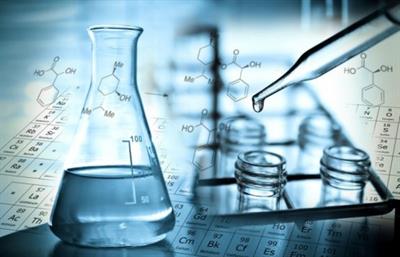Discover the current Advancements in Chemical Products for Improved Performance
Discover the current Advancements in Chemical Products for Improved Performance
Blog Article
Key Considerations for Choosing the Right Chemical Products to Attain Reliable Integrated Solutions in Your Workflow
Picking the appropriate chemical products for incorporated solutions in operations requires a multifaceted approach that encompasses various vital factors to consider. From assessing chemical compatibility to ensuring adherence to regulatory criteria, each aspect plays a critical role in optimizing functional effectiveness and security.
Understanding Chemical Compatibility

To examine compatibility, one should think about variables such as the chemical buildings of the materials involved, including pH, concentration, temperature level, and the presence of pollutants. Making use of compatibility graphes and data sources can provide useful understandings right into potential interactions. Furthermore, carrying out small-scale tests can assist recognize unforeseen reactions that may not be documented.
Elements such as moisture, light exposure, and temperature level can affect the security and reactivity of chemical items. By prioritizing chemical compatibility throughout the selection procedure, organizations can boost operational performance, decrease the threat of mishaps, and ensure compliance with safety procedures.
Reviewing Regulatory Conformity
In the complex landscape of chemical product option, assessing regulative conformity is critical to making sure not just safety however additionally lawful adherence. Organizations should browse a myriad of laws, from neighborhood and national laws to worldwide criteria, that control the usage, storage space, and disposal of chemical substances. This calls for a thorough understanding of suitable laws such as the Occupational Safety And Security and Health Administration (OSHA) standards, the Epa (EPA) guidelines, and the European Union's Registration, Evaluation, Authorisation and Limitation of Chemicals (REACH)
When choosing chemical products, it is vital to confirm that suppliers give Security Data Sheets (SDS) that detail potential hazards and handling demands. Moreover, services ought to verify that the chemicals adhere to industry-specific guidelines, which may enforce added stipulations. Non-compliance can cause severe charges, including penalties and operational shutdowns.
In addition, organizations need to stay upgraded on regulatory adjustments, as non-compliance can arise from out-of-date practices. Establishing a durable compliance strategy, including normal audits and employee training, can assist make sure adherence to current policies. Inevitably, prioritizing regulative compliance not just mitigates risk however likewise enhances the company's reputation and functional efficiency.
Assessing Environmental Impact
Just how can organizations properly analyze the environmental impact of chemical items during the option process? Organizations needs to begin by determining the potential threats connected with each chemical, consisting of toxicity, perseverance in the environment, and bioaccumulation capacity.
In addition, organizations can utilize third-party accreditations and eco-labels that show compliance with ecological standards - Chemical Products. Engaging with distributors that prioritize sustainability methods can additionally enhance the choice procedure. It is crucial to analyze not just the direct impacts of Discover More Here chemical usage yet also the indirect impacts, such as power usage and waste generation
Implementing life process evaluation (LCA) techniques can supply detailed insights into the ecological impact of chemical items, highlighting areas for renovation. By focusing on openness and cooperation with stakeholders, organizations can make informed decisions that straighten with their sustainability goals while decreasing damaging ecological outcomes. This aggressive technique ultimately promotes a more responsible and eco-conscious operational framework.
Analyzing Cost-Effectiveness
While reviewing chemical items for operational use, organizations have to additionally take into consideration cost-effectiveness as an essential factor in the option process. This includes assessing not just the first purchase cost however additionally the overall cost of ownership, that includes variables such as use efficiency, maintenance, and disposal prices. Chemical Products. home An item that shows up low-cost upfront may incur greater costs in power intake or call for even more regular substitute, inevitably influencing the lower line
In addition, companies should evaluate the capacity for cost financial savings with optimized solutions that boost performance and minimize waste. Items that require click here for more lower application rates or offer faster processing times can lead to considerable financial savings over time. It is also necessary to consider the influence of governing compliance prices, as non-compliance can lead to penalties and boosted functional expenses.
Additionally, organizations need to review the lasting worth stemmed from the chemical items, consisting of boosted quality, raised performance, and boosted security. A comprehensive cost-effectiveness evaluation empowers companies to make educated decisions that straighten with both their monetary goals and functional objectives, inevitably resulting in lasting and reliable methods.
Identifying Supplier Integrity
Supplier reliability is extremely important when picking chemical products for procedures, as it directly influences both product top quality and functional effectiveness. A reputable supplier continually provides high-quality products in a timely manner, ensuring that your procedures continue to be continuous. To identify distributor dependability, begin by examining their online reputation within the industry. Choose evaluations, endorsements, and case studies that highlight their performance and customer fulfillment levels.
Next, consider the distributor's history of compliance with laws and requirements. A trustworthy vendor ought to have a durable high quality assurance program that complies with market standards. Additionally, review their capability to provide technological support and product details, which is vital for informed decision-making.

Final Thought
In conclusion, choosing the proper chemical products for integrated remedies demands a detailed examination of a number of crucial factors. Understanding chemical compatibility, making sure regulative compliance, analyzing environmental impacts, assessing cost-effectiveness, and determining dependable vendors collectively add to informed decision-making.
Report this page